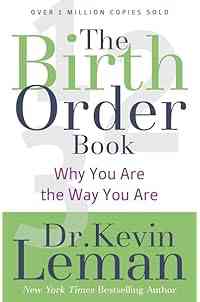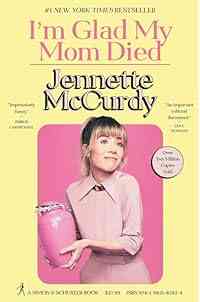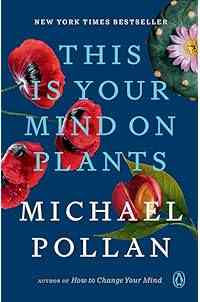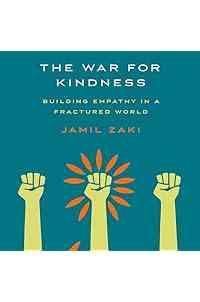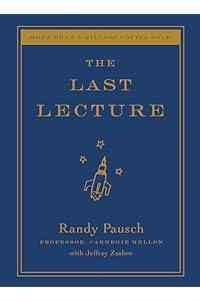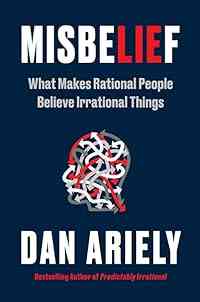
Misbelief: What Makes Rational People Believe Irrational Things
Introduction:
In 'Misbelief: What Makes Rational People Believe Irrational Things,' Dan Ariely explores the perplexing question of why intelligent, rational individuals often hold beliefs that are starkly contradicted by evidence and logic. As a renowned behavioral economist, Ariely delves into the psychology behind irrational beliefs, drawing on his extensive research and experiments to unveil the underlying mechanisms that drive this phenomenon. This book is not just an academic exploration; it is a journey into understanding the quirks of human nature, the biases that shape our perceptions, and the societal implications of widespread irrational beliefs. Through engaging anecdotes, scientific studies, and thought-provoking analysis, Ariely provides readers with insights into how and why we believe the unbelievable, making complex psychological concepts accessible to a broad audience.
Key Takeaways:
Misbelief: What Makes Rational People Believe Irrational Things (Dan Ariely)
Cognitive Biases and Decision Making
Ariely delves deep into the realm of cognitive biases, the systematic patterns of deviation from norm or rationality in judgment, which plays a pivotal role in shaping our beliefs and decisions. He explains various biases such as confirmation bias, where people favor information that confirms their preconceptions, and availability heuristic, where individuals assess the probability of events based on how easy examples come to mind. Through a variety of experiments and examples, Ariely illustrates how these biases lead us astray, often making us cling to beliefs in the face of contradictory evidence. Understanding these biases, Ariely argues, is critical to recognizing why rational people can harbor irrational beliefs and highlights the importance of developing strategies to mitigate their effects in our decision-making processes.
The Role of Emotions in Belief Formation
Emotions play a critical and often underestimated role in belief formation, as Ariely outlines in this segment. He discusses how emotional responses can override rational thought, leading to the acceptance of irrational beliefs. Ariely points out instances where fear, love, anger, or hope can dictate our beliefs, making us more susceptible to misinformation or illogical notions that align with our emotional state. For example, fear can make us irrationally overestimate the likelihood of negative events, leading to beliefs that aren't supported by facts. By exploring the interaction between emotions and cognition, Ariely sheds light on the complex web of factors that influence our beliefs and demonstrates how understanding our emotional triggers can help us better navigate the landscape of truth and misinformation.
Social Influence and Group Dynamics
Ariely examines the powerful influence of social networks and group dynamics on belief formation, emphasizing how the views and actions of others can significantly shape our own beliefs. He explores concepts like social proof, where individuals look to the behavior of others to guide their own actions, and groupthink, which describes how a group's desire for harmony or conformity results in irrational or dysfunctional decision-making outcomes. Through engaging stories and research findings, Ariely illustrates the extent to which our beliefs are not solely a product of individual reasoning, but are also heavily influenced by the people around us. He argues that understanding the social roots of our beliefs can lead to better societal interventions to combat misinformation and irrational beliefs, fostering a more informed and rational public discourse.
The Challenge of Changing Beliefs
Changing deeply held beliefs, even in the face of compelling evidence, is notoriously difficult. Ariely dives into the psychological mechanisms that make belief revision challenging, such as cognitive dissonance, where individuals experience discomfort from holding two contradicting beliefs and often reject new information to preserve their current belief system. He also examines the backfire effect, where correcting misinformation can paradoxically strengthen one's misbeliefs. Through insights from behavioral science, Ariely provides strategies for effectively communicating evidence and fostering openness to changing beliefs. This section serves as a guide for educators, policymakers, and anyone interested in promoting rationality and dispelling myths in an often irrational world.
Practical Applications for Everyday Life
Ariely does not just explore the theoretical aspects of belief formation; he also offers practical advice for applying these insights to everyday life. He provides tips for recognizing and combating our own irrational beliefs, making better decisions, and engaging with others' beliefs empathetically and effectively. Whether it's navigating personal relationships, making financial decisions, or interacting with media, Ariely shows how understanding the principles of irrational belief formation can lead to more rational thinking and behavior. This section is particularly valuable for readers looking to apply behavioral science insights to improve their own lives and the lives of those around them, demonstrating the real-world relevance of Ariely's research.
Conclusion:
Misbelief: What Makes Rational People Believe Irrational Things' is a seminal work that provides profound insights into the psychology of belief and rationality. Dan Ariely masterfully unravels the complex web of factors that lead rational individuals to embrace irrational beliefs. This book is an essential read for anyone interested in psychology, behavioral economics, or simply understanding the intricacies of human nature. Whether you are a professional in the field, a student, or just a curious mind, Ariely's accessible writing and compelling evidence will enrich your understanding of how beliefs are formed and how they can be changed. It offers practical guidance for fostering rationality in a world where misinformation and irrational beliefs are all too common, making it a valuable resource for enhancing personal growth and societal wellbeing.
